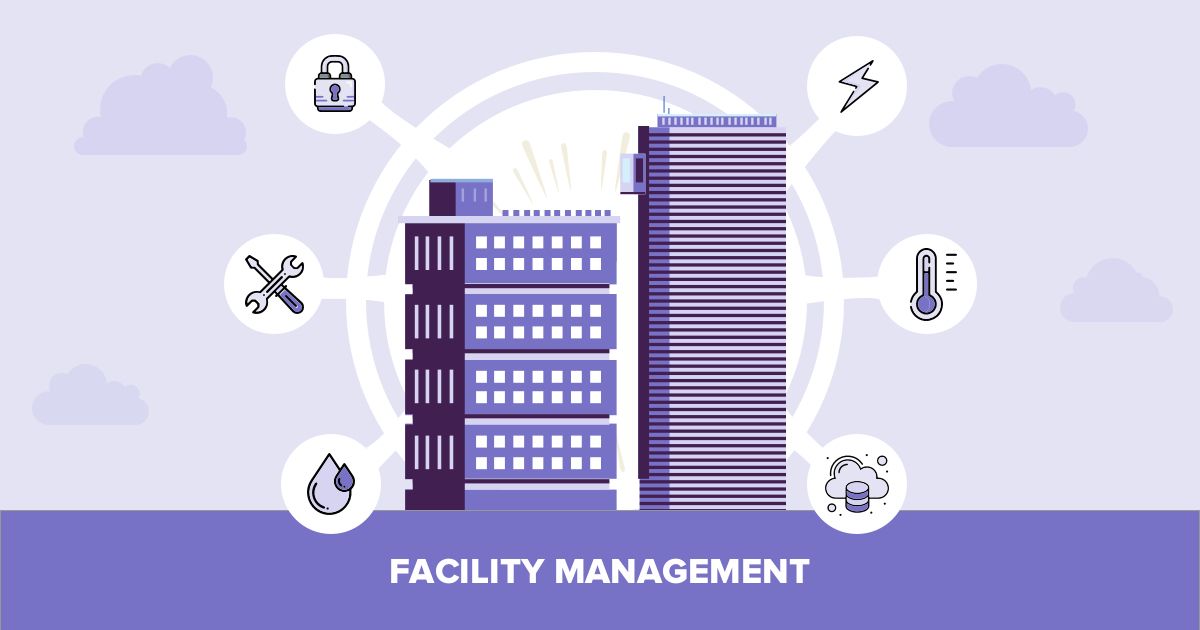The Importance of Sustainability in Facility Management Practices
The Importance of Sustainability in Facility Management Practices
Blog Article
Make The Most Of Efficiency and Safety And Security: Ideal Practices in Facility Management
In today's swiftly developing landscape, making the most of effectiveness and safety in center administration has actually come to be a critical emphasis for companies striving to enhance functional efficiency. By integrating wise modern technology, focusing on maintenance methods, and fostering a society of security, center supervisors can substantially enhance both performance and conformity.
Embrace Smart Innovation

Executing smart sensing units and automation systems enables specific monitoring of environmental problems, tenancy degrees, and devices performance. This data-driven approach not just notifies decision-making but also sustains anticipating maintenance, lessening downtime and extending property life. In addition, clever technology enhances user experience by producing flexible atmospheres that reply to the demands of passengers.
Incorporating smart platforms also promotes sustainability initiatives, such as energy-efficient lighting and HVAC systems, adding to decreased carbon footprints. By accepting these developments, facility managers can make certain that their operations stay competitive, resilient, and straightened with modern sustainability goals. Inevitably, the change in the direction of wise innovation represents a transformative step in redefining facility administration for a more sustainable and effective future.
Prioritize Normal Upkeep
Normal upkeep is crucial for ensuring the longevity and effectiveness of facility procedures. A well-structured upkeep program not only expands the life of equipment and framework however likewise lowers the probability of unforeseen failures that can interfere with procedures. By prioritizing routine maintenance, center supervisors can recognize potential concerns early, enabling timely interventions that reduce expensive repair work and downtime.
Developing a routine maintenance timetable is necessary. This need to consist of normal inspections, maintenance, and essential repair services for all equipment, cooling and heating systems, pipes, and electrical systems. Using a computerized maintenance administration system (CMMS) can enhance this procedure, providing monitoring and signals for upcoming maintenance tasks.
Additionally, cultivating a culture of accountability amongst staff improves the performance of maintenance initiatives. Training workers to acknowledge and report maintenance concerns can bring about positive monitoring instead than responsive responses. Furthermore, recording upkeep tasks guarantees compliance with security laws and supplies important understandings for future planning.
Implement Security Training Programs
A detailed security training program is essential for fostering a safe functioning atmosphere in any kind of facility. Facility Management. Such programs gear up employees with the understanding and abilities necessary to recognize risks, execute security procedures, and react properly in emergency situations. By focusing on security training, organizations can dramatically minimize the danger of injuries and accidents, therefore enhancing overall performance
To implement an effective security training program, it is crucial to tailor the content to the certain demands of the facility and its operations. This includes performing a complete risk assessment to identify potential threats distinct to the workplace. Training must encompass a selection of topics such as correct devices use, emergency situation discharge procedures, and emergency treatment techniques.
In addition, it is essential to involve staff members proactively during training sessions. Making use of hands-on demonstrations and real-life scenarios can improve understanding and retention of security techniques. Normal correspondence course ought to likewise be arranged to keep security awareness at the center.
Optimize Room Utilization
Efficient space usage is an essential component of center management that directly impacts functional efficiency and cost-effectiveness. Organizations typically have problem with underutilized or overcrowded spaces, resulting in ineffectiveness and raised expenses. To enhance space application, center supervisors need to perform regular assessments to recognize just how spaces are currently being used and where improvements can be made.
Executing adaptable office layouts, such as open workplace formats or modular furniture, can substantially enhance adaptability to altering needs. Additionally, leveraging modern technology, such as area management software program, can supply valuable insights right into tenancy patterns and help identify visit underused areas.
Establish Clear Communication Channels
Optimizing area utilization frequently reveals the demand for robust interaction approaches within a center. Clear interaction networks are crucial for promoting reliable cooperation amongst staff, maintenance teams, and management. By establishing these networks, center managers can guarantee that information moves seamlessly regarding room use, operational adjustments, and safety and my sources security methods.
Executing a multi-faceted interaction approach-- combining digital platforms, such as e-mails and team cooperation tools, with in person communications-- can considerably improve engagement and information circulation. Regular conferences should be set up to talk about recurring tasks, address worries, and share updates. Additionally, developing a central info hub, such as an intranet, enables staff members to accessibility essential papers and announcements easily.
In addition, feedback mechanisms are crucial to determine the efficiency of interaction techniques. Motivating personnel to share their understandings can bring about enhancements and foster a culture of visibility. Training programs focused on interaction abilities can additionally encourage workers to communicate details plainly and effectively.
Eventually, developing clear interaction networks not just takes full advantage of effectiveness yet likewise improves safety by making sure that every person is educated and aligned with the facility's functional goals.

Conclusion
In verdict, the assimilation of wise innovation, normal upkeep, thorough security training, enhanced area usage, and reliable interaction networks collectively enhances performance and safety in facility administration. These finest techniques offer as crucial components for reliable center monitoring.
In today's rapidly advancing weblink landscape, maximizing performance and safety and security in center management has come to be an important focus for companies making every effort to improve functional performance. By incorporating smart innovation, focusing on upkeep procedures, and fostering a culture of safety and security, center supervisors can substantially enhance both productivity and conformity.To execute an effective safety training program, it is critical to customize the content to the certain needs of the center and its procedures. By establishing these networks, facility supervisors can make sure that details flows flawlessly regarding space usage, functional adjustments, and security procedures.
In final thought, the assimilation of smart modern technology, normal maintenance, thorough safety training, optimized area application, and efficient interaction networks jointly improves performance and safety and security in facility management. - Facility Management
Report this page